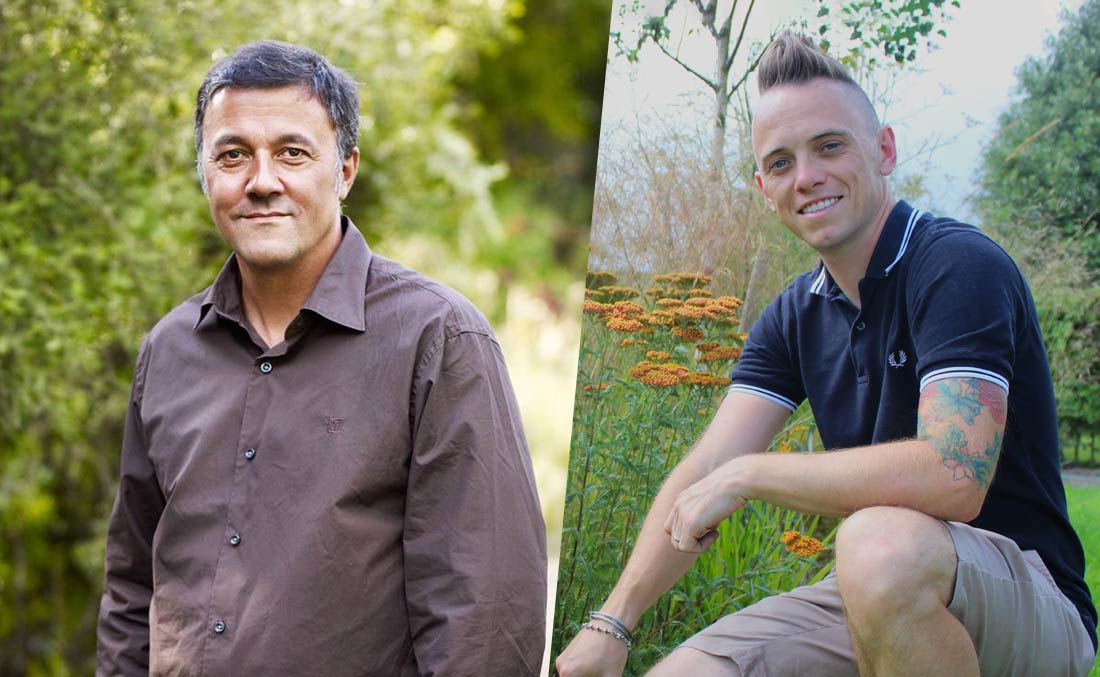As part of our blog series exploring the pros and cons of artificial grass, we’ve discovered the disadvantages seem to far outweigh the perceived benefits of astro turf, but what better way to explore the topic further than by getting the opinion of not one but two garden experts?
Let’s meet the guys.
Lee Burkhill

Lee Burkhill, better known as the Garden Ninja and one of the presenters of BBC1’s hit show Garden Rescue, is a blogger & vlogger from the North West of England. He provides how-to guides on all aspects of gardening through his YouTube channel. Representing a new generation of gardeners, Lee Burkhill helps demystify all areas of practical gardening and design. We were thrilled to get his thoughts on the subject of artificial grass:
“My garden design clients are increasingly asking about maintenance-free fake lawns under the illusion it will save them time and money. However, once I've explained the effort, expense and fact it can't be recycled when it comes to the end of its life span their position on fake grass changes!
My position with artificial grass is that I won’t use it as I think it’s highly destructive to wildlife, looks garish, can’t be recycled and there are other better low maintenance options available to a considered, environmentally friendly designer. If people are fitting fake grass they are missing the benefits of gardening in the true sense; which is to work with nature.”
Lee has provided an in-depth overview on the subject in his post Artificial Turf Reviewed – is fake grass an environmental timebomb? which we found a really insightful read.
Cleve West

Cleve West is a multi-award-winning garden designer whose thoughtful, imaginative designs have seen him win RHS Gold 6 times over at Chelsea Flower Show, as well as twice winning the prestigious ‘Best in Show’. Cleve’s work is firmly rooted in preserving and improving biodiversity.
It was a pleasure to discuss artificial grass with Cleve; here’s what he had to say on the matter:
“While I didn’t have anything against artificial turf when it first appeared on the market, I’ve never been tempted to use it and have never had a client request it.
Now we understand the negative effects of the Anthropocene on biodiversity and sustainability, the increased popularity of artificial turf is alarming.
While it may have a place in certain circumstances, my view is that gardens are not just for people and the less we see of artificial grass the better.
Each garden has an opportunity to play a small but vital part in providing food and habitat for wildlife. An artificial lawn robs the natural world of this opportunity.
Also, the manufacture of artificial grass carries a large carbon footprint and the product is difficult to recycle, often ending up in landfill. Aside from the convenience of not having to mow the lawn, it’s hard to see what there is to love about artificial grass.”
If you’d like to learn more about Cleve’s work, check out his website Clevewest.com.
Through our blog series we have touched on many aspects of artificial grass, looking at the times when plastic turf may be appropriate as well as the many dangers of artificial grass in domestic gardens. Whether it’s the removal of vital wildlife habitat, the large volume of plastic it takes to create it, or the carbon footprint the product has, there’s plenty of reasons to leave it out of your garden makeover plans.
With thanks to Lee and Cleve for their valuable contributions.
